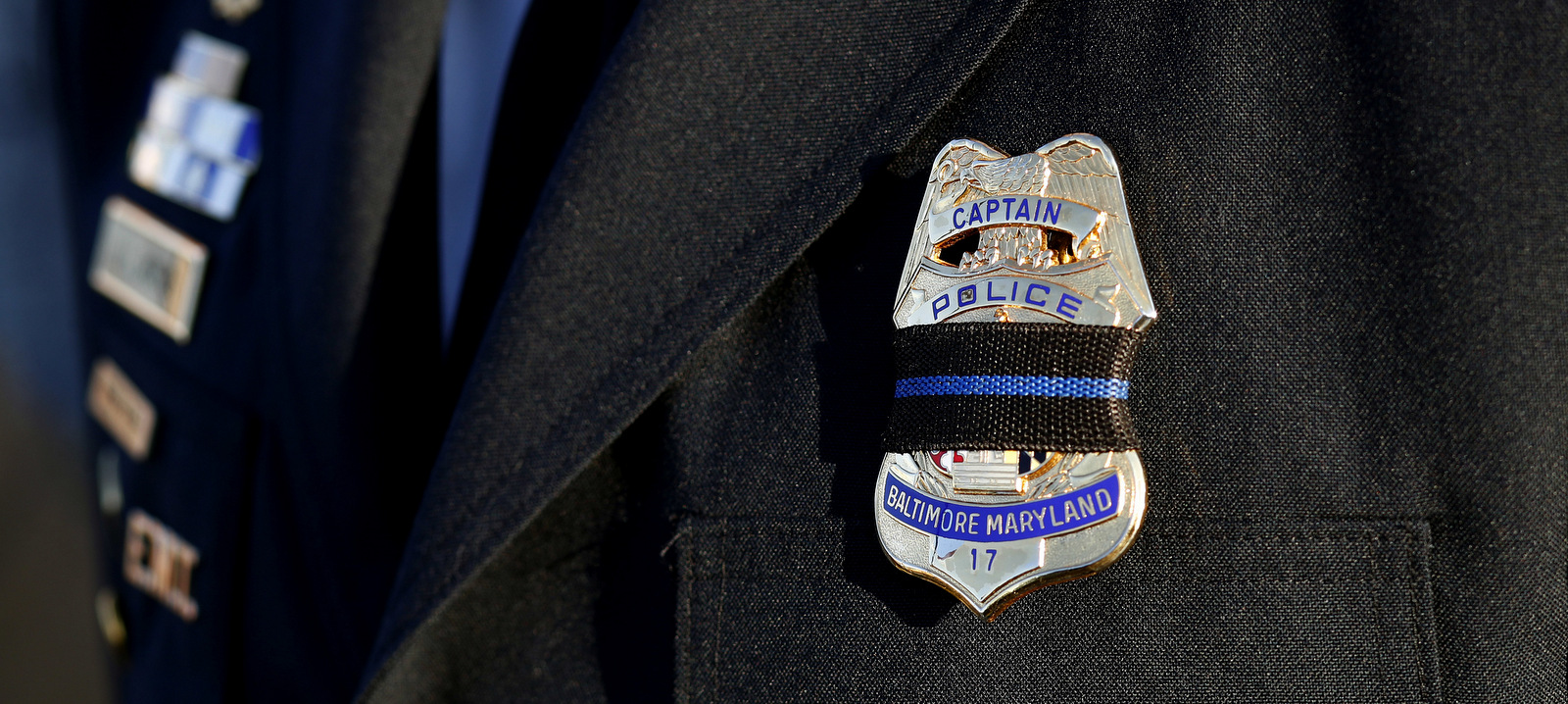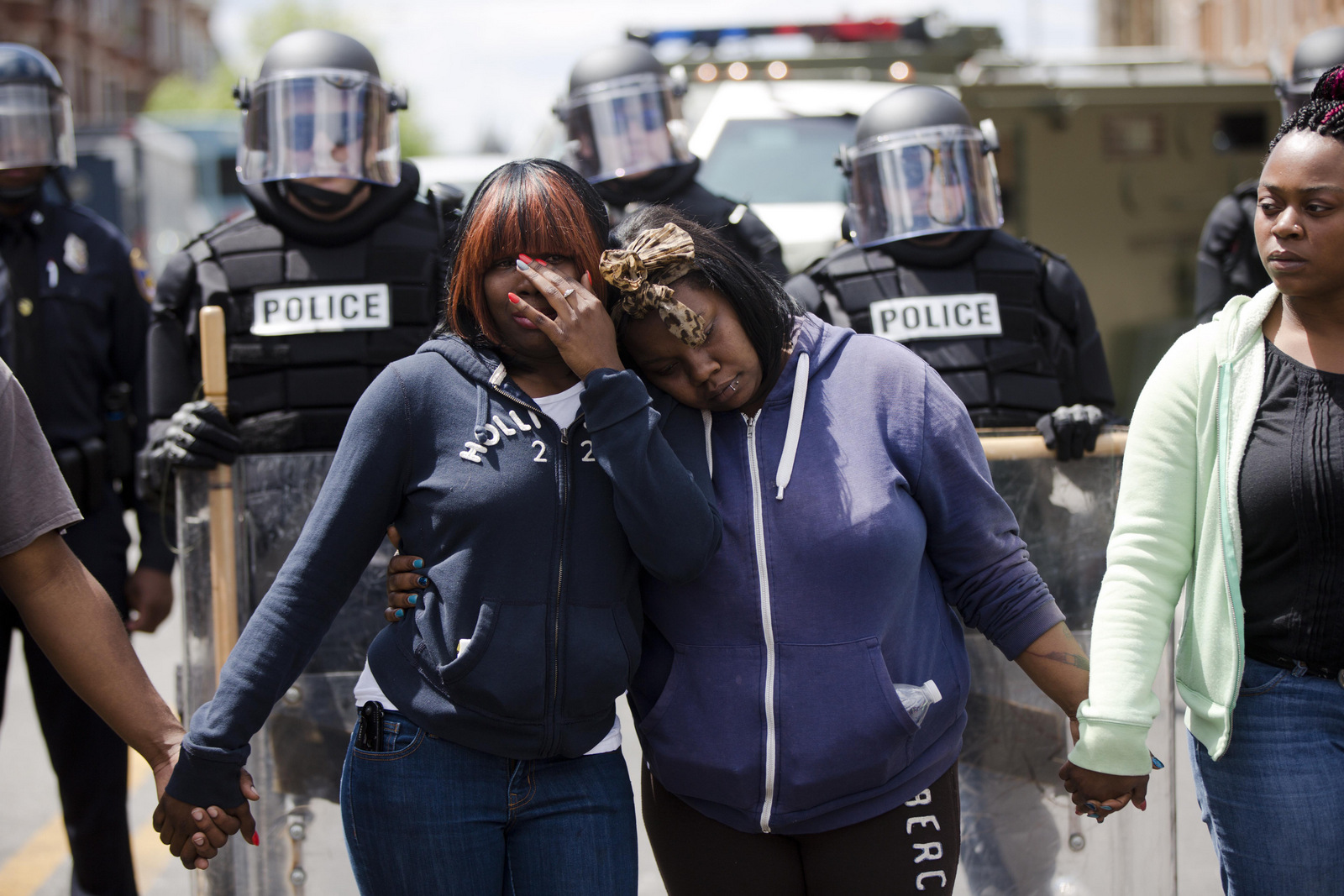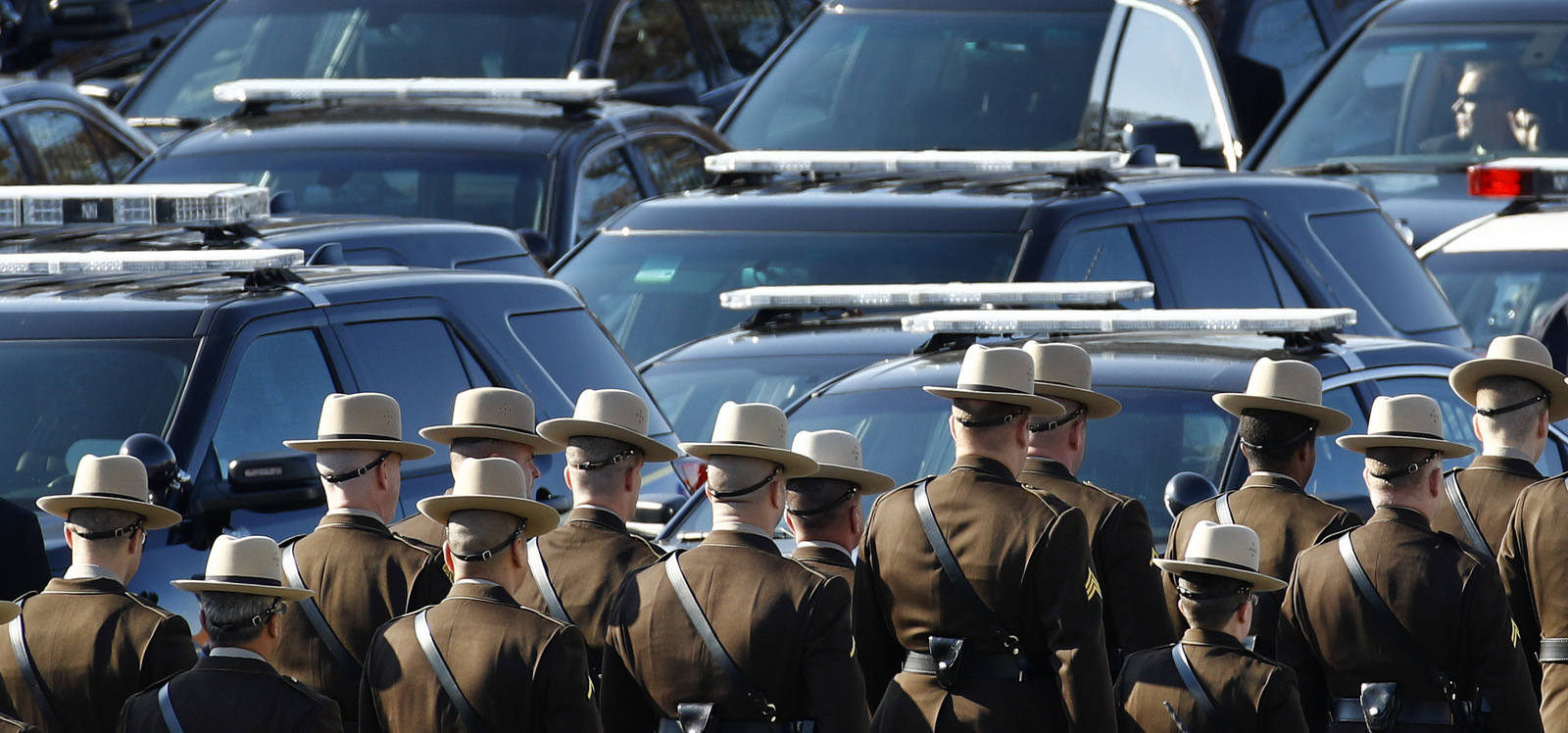Update: Baltimore’s Police Commissioner has officially requested the FBI to take over the investigation of the death of 18-year veteran Sean Suiter. Suiter was killed two weeks ago one day before he was scheduled to testify in front of a federal grand jury investigating racketeering charges against eight Baltimore police officers. Suiter was not a target of the grand jury nor was he suspected of any illegal activity. The request comes one day after Baltimore prosecutors revealed that Suiter had been “tricked” into finding drugs that had been illegally planted on a suspect back in 2010:
“The move came as federal prosecutors filed a new indictment against Sgt. Wayne Jenkins, a former member of Baltimore’s corrupt Gun Trace Task Force, alleging that he duped Suiter seven years ago into finding drugs Jenkins had planted in a man’s car. Prosecutors disclosed Thursday that because of those allegations, they quietly released the man from prison in August.”
“Umar Burley had served seven years of a 15-year sentence related to the drugs. Prosecutors now say he was innocent.”
On November 15, Sean Suiter, an 18-year veteran of the Baltimore Police Department, was shot and killed with his own service weapon in an empty West Baltimore lot.
Suiter was scheduled to testify before a federal grand jury against members of the department’s gun squad on the following day, November 16. There are currently no leads in the case, but the Baltimore Police Department has thus far refused the assistance of the FBI in the investigation of Suiter’s death.
Suiter and an unnamed detective were following up on a homicide investigation when they approached an unidentified man in a West Baltimore lot. A struggle ensued and Suiter was shot with his own weapon. He was found clutching his radio.
A number of speculative theories have surfaced surrounding Suiter’s death. In addition to the lack of FBI involvement in the case, there are questions as to why there have been no leads in the case thus far; the assertion that Suiter shot himself; and why Suiter’s partner took cover during the altercation instead of backing up his partner.
Link to departmental corruption, “blue wall of silence”?

According to Baltimore’s WBAL-Channel 11, Suiter had been scheduled to testify regarding a traffic stop and car chase/accident initiated by himself and one of the indicted officers, Wayne Jenkins:
A key figure in the case, [Jenkins] wrote the report on the traffic stop and crash, saying he saw someone get in the target car with cash. Suiter was involved in the stop. Jenkins wrote he’s the one who found drugs in the car. It is unknown what testimony [Suiter] may have provided.”
Jenkins, who was the captain of the department’s gun task force, is one of the eight Baltimore officers indicted on federal racketeering charges alleging robbery of individuals, extortion from drug dealers, and fraudulent overtime claims.
Seven of the officers were indicted in March of this year. An eighth officer, who was also part of the gun task force, was indicted on charges that he “stole money from victims, some of whom had not committed crimes, swore out false affidavits and submitted false official incident reports.” A ninth police officer from Philadelphia was arrested earlier this month and charged with helping to distribute drugs stolen by Baltimore police.
Baltimore Police Commissioner Kevin Davis has stressed that Suiter was not a target of the federal grand jury or any other investigation.
As commissioner, Davis would have to make the request for the FBI to take over the investigation of Suiter’s death, but thus far has not taken such action.
Heightened scrutiny since death of Freddie Gray

Baltimore’s police department has been under increased scrutiny since the April 2015 death in police custody of 25 year-old Freddie Gray. Gray’s death — from spinal injuries received during an arrest and transport to the city’s jail – touched off days of violent unrest in the city.
Six police officers subsequently indicted for Gray’s death have either been found not guilty or had their charges dropped.
A 163-page report by the U.S. Department of Justice, released in August 2016, found that police in Baltimore “routinely” violated the constitutional rights of its residents via unlawful stops and excessive force. As of July 2016, Baltimore’s population was 63.3 percent Black.
The Justice Department’s report was followed by a consent decree with Baltimore, reached in January of this year, that totaled 227 pages. After coming to an agreement on the details of the plan, the decree was entered into this past April.
Top photo | Members of the Maryland State Police march into position past police vehicles outside Baltimore Police Det. Sean Suiter’s funeral at Mount Pleasant Church in Baltimore, Nov. 29, 2017. (AP/Patrick Semansky)
Thandisizwe Chimurenga is an award-winning, freelance journalist based in Los Angeles, California. She is a staff writer for MintPress News, Daily Kos and co-hosts a weekly, morning drive-time public affairs/news show on the Pacifica Radio network. She is the author of No Doubt: The Murder(s) of Oscar Grant and Reparations … Not Yet: A Case for Reparations and Why We Must Wait; she is also a contributor to several social justice anthologies.


